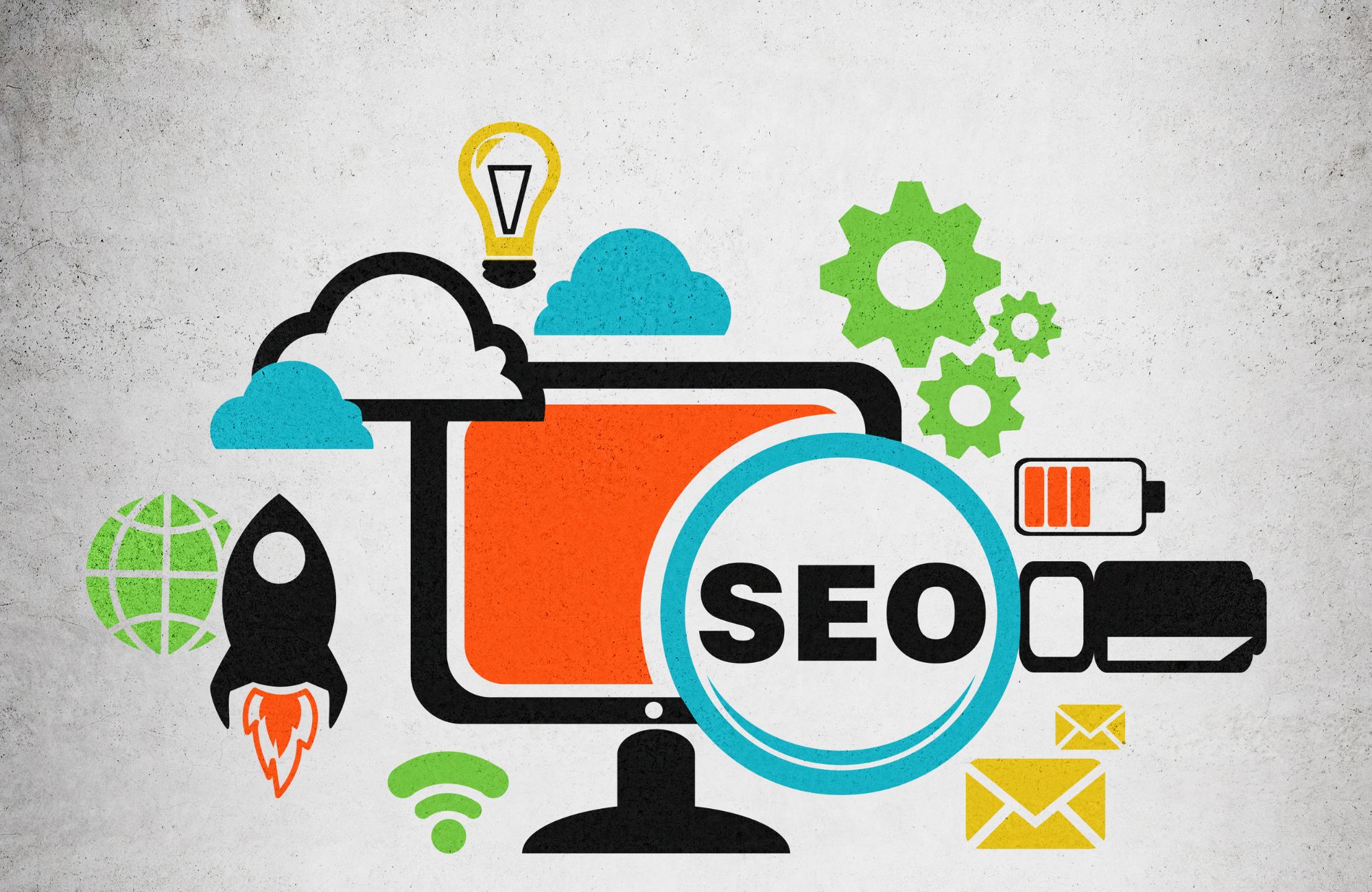If you’re a small business owner asking if SEO is worth it for a small business, you’re not alone. In today’s fast-moving digital landscape, many entrepreneurs are looking for smart ways to stand out online and reach more people. SEO has become a vital strategy for doing just that, helping your business show up when potential customers are actively searching.
Unlike short-term promotions, SEO is a cost-effective way to bring in steady website traffic and convert visitors into paying customers. It works alongside other marketing efforts to build long-term visibility and trust. In this guide, we’ll walk you through why SEO is a must for small businesses and how to get started.
Key Takeaways
- SEO is a long-term, cost-effective strategy that helps small businesses attract paying customers by driving consistent, organic traffic without ongoing ad spend.
- Local SEO plays a key role in helping small businesses show up in nearby searches, making it easier to connect with customers who are ready to buy.
- With the right strategy and consistent effort, small businesses can use SEO to compete with larger companies and build lasting online visibility and trust.
What is SEO and Why It Matters for Small Businesses
Search engine optimization (SEO) is the process of improving your website’s visibility on search engines like Google, Bing, and Yahoo. When someone searches for products or services related to your business, SEO helps your website appear higher in the search results.
Think of search engines as massive libraries. When someone asks a question or looks for something specific, the search engine’s job is to find the most relevant and helpful answers. SEO is how you make sure your business shows up when potential customers are looking for what you offer.
SEO vs Local SEO: What’s the Difference?
Regular SEO focuses on improving your visibility for searches anywhere in the world. Local SEO, on the other hand, specifically targets customers in your geographic area. For most small businesses, local SEO is incredibly important because you want to attract local customers who can actually visit your store or use your services.
Local SEO includes optimizing your Google Business Profile, getting positive reviews, and ensuring your business shows up in Google Maps when people search for businesses “near me.”
8 Proven Benefits of SEO for Small Businesses
1. Increased Website Traffic and More Customers
The top result on Google gets almost 30% of all clicks, while only 0.63% of people click on results from the second page. This means ranking higher in search results directly translates to more visitors to your website and more potential customers.
When someone searches for “coffee shop near me” or “best plumber in [city],” you want your business to appear at the top. SEO helps make that happen.
2. Cost-Effective Compared to Paid Advertising
Unlike paid advertising, where you pay for each click, organic traffic from SEO is essentially free once you start ranking. While SEO requires an upfront investment of time or money, it continues to drive traffic without ongoing costs.
Consider this: a single Google ad click might cost $5-50, depending on your industry, but one well-optimized page can attract hundreds of visitors every month without additional cost.
3. Better Online Visibility and Brand Recognition
When your business consistently appears in search results for relevant keywords, people begin to recognize and trust your brand. This improved visibility helps you compete with larger businesses and establishes your authority in your local market.
Studies show that businesses appearing on the first page of Google are perceived as more trustworthy and credible by potential customers.
4. Attract Local Customers When They’re Ready to Buy
76% of people who search for something nearby on their smartphones visit a business within a day, and 28% of those searches result in a purchase. This means local SEO helps you capture customers at the exact moment they’re looking to buy.
5. Long-Term Results That Build Over Time
Unlike social media ads or traditional advertising that stop working when you stop paying, SEO builds momentum over time. A well-optimized piece of content can continue attracting customers for months or even years.
6. Improved User Experience
SEO best practices naturally improve your website’s user experience. Faster loading pages, mobile-friendly design, and well-organized content all help visitors find what they need quickly and easily.
7. Measurable Results You Can Track
With tools like Google Analytics, you can see exactly how many people found your business through search, which keywords they used, and whether they became customers. This data helps you make informed decisions about your marketing strategies.
8. Level the Playing Field with Larger Competitors
While large companies might have bigger advertising budgets, they don’t automatically win at SEO. With the right strategy and consistent effort, small businesses can outrank much larger competitors for local searches and specific keywords.
How to Get Started with SEO for Your Small Business
Set Up Your Foundation
Start by creating a free Google Business Profile to boost your visibility in local search and Google Maps. Then set up Google Analytics to track how visitors find and interact with your website. Both tools are essential for building and measuring your SEO success.
Do Basic Keyword Research
Keyword research means finding the words your potential customers use when searching online. Start with tools like Google’s autocomplete or Keyword Planner, and focus on local keywords, service-specific terms, and long-tail phrases that are more specific and easier to rank for.
Optimize Your Website
On-Page SEO Basics:
Optimize your website by adding relevant keywords to page titles and headings, writing click-worthy meta descriptions, and using descriptive alt text for images. Focus on creating high-quality content that answers customer questions, and make sure your site loads fast and works well on mobile devices.
Local SEO Essentials:
Make your business easier to find by adding your address and phone number to every page, creating location-specific pages for each area you serve, and mentioning local landmarks or neighborhoods in your content.
Create Valuable Content
Content creation is one of the most important parts of SEO. Focus on writing blog posts, how-to guides, and FAQs that answer common questions, solve customer problems, highlight your expertise, and include relevant keywords naturally. This helps you connect with your target audience by providing value and building trust.
Build Your Online Reputation
Link building is a key part of SEO that helps boost your website’s authority. Get listed in local directories, partner with local businesses for cross-promotion, and create content others want to link to. At the same time, manage reviews by asking satisfied customers for feedback, responding professionally, and using reviews to improve your services and connect with your target audience.
How Much Does SEO Cost and When Will You See Results?
SEO investment options can fit a wide range of budgets, so don’t let pricing intimidate you. A DIY approach (often free or under $500/month) is great for small businesses with time to learn and grow. Hiring a freelancer or consultant (typically $500 to $2,000/month) offers more expertise with flexible support. SEO agencies (starting around $1,000/month) provide full-service help and faster results, ideal for businesses ready to scale. The right option depends on your goals, resources, and how hands-on you want to be.
Timeline for Results
SEO is a long-term strategy, not a quick fix. While you may see initial improvements in 3 to 6 months, significant results often take 6 to 12 months or more. The timeline depends on your website’s current state, industry competition, SEO quality, and how consistently you apply your efforts, but the long-term benefits are well worth it.
Common SEO Mistakes to Avoid
- Keyword Stuffing: Don’t overuse keywords unnaturally in your content
- Ignoring Mobile Users: Ensure your website works perfectly on phones and tablets
- Neglecting Local SEO: Don’t forget to optimize for local searches
- Inconsistent Information: Keep your business details the same everywhere online
- Poor Content Quality: Focus on helpful, well-written content rather than quantity alone
- Buying Cheap Links: Avoid services that promise quick results through low-quality backlinks
Measuring Your SEO Success
To measure your SEO progress, track key metrics that reflect both website performance and real business impact. Monitor traffic metrics like organic traffic growth, new visitors from search, and pages viewed per session. Keep an eye on keyword rankings, especially improvements in position and local search visibility.
Also track business results such as leads, phone calls, form submissions, and sales from organic traffic. For local SEO, review your Google Business Profile views, direction requests, and how often customers leave reviews. These insights help you understand what’s working and where to improve.
The Bottom Line: Is SEO Worth It for Small Businesses?
The short answer is absolutely yes. SEO is seo important for several compelling reasons:
- Return on Investment: Unlike paid advertising, SEO continues working even when you’re not actively spending money. A well-optimized website can attract customers 24/7 without ongoing costs.
- Competitive Advantage: Many small businesses still aren’t doing SEO properly, which means there’s often little competition for local keywords in many industries.
- Customer Behavior: People trust organic search results more than ads. When your business appears naturally in search results, customers are more likely to view you as credible and trustworthy.
- Long-term Growth: SEO builds momentum over time. The longer you invest in it, the stronger your online presence becomes.
Conclusion
So, is SEO worth it for small business in 2025? Absolutely. It’s one of the smartest investments you can make to drive long-term growth, attract paying customers, and compete effectively in today’s digital landscape. Whether you’re just starting out or ready to scale, SEO offers a cost-effective way to build trust, increase visibility, and stay ahead of local competitors. The sooner you start, the more momentum you’ll build over time.
Ready to take your small business to the next level with SEO? At ChitChat Marketing, we specialize in helping businesses like yours grow through smart, personalized strategies that actually work. Let’s talk about how we can help you get found online, attract more local customers, and turn clicks into conversions. Contact us today to get started.
FAQs
Is SEO worth it for small businesses?
Yes, SEO is absolutely worth it for small businesses because it’s seo important for long-term growth, often has little competition in local markets, and helps you get more reviews from satisfied customers who find you through search.
Is paying someone to do SEO worth it?
Paying for professional SEO services is worth it if you lack the time or expertise to do it yourself, as experts can deliver faster results and avoid costly mistakes, though DIY SEO can work for businesses with limited budgets and more time to invest.
Can a website be successful without SEO?
While a website can have some success without SEO through direct traffic, referrals, or paid advertising, it will miss out on the 53.3% of web traffic that comes from organic search and struggle to compete with businesses that do invest in SEO.
How do I know if my SEO is good?
You can tell your SEO is working if you see increased organic website traffic, higher rankings for your target keywords, more phone calls and inquiries from your website, and improved visibility in local search results over a 3-6 month period.



Leave a comment